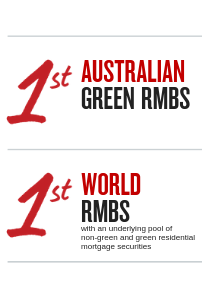Robust growth for online retail sales observed in June


Insight
It’s beginning to dawn on investors – and the people for whom they invest – that they’re in a unique position to change the world, without sacrificing financial gains.
Investors are increasingly taking into account environmental, social and governance (ESG) factors and eliminating certain investments from their portfolios due to ethical, moral or religious beliefs.
The socially responsible investing market (SRI) in Australia and New Zealand grew 248 per cent between 2014 and 2016 and now accounts for half all assets under professional management.
It reflects a growing global trend and points to SRI becoming mainstream in the not-too-distant future.
Moreover, according to recent research1 SRI doesn’t come at a detriment to financial returns. Indeed, the incorporation of ESG factors into the investment process might result in an outperformance effect.
NAB has played a critical role in developing the market launching several innovative bonds including the world’s first social bond promoting workplace gender equality and the world’s first mixed green building bond.
The NAB Social Bond (Gender Equality), launched in early 2017, provided investors the opportunity to invest in financing or refinancing organisations that have been named Employers of Choice for Gender Equality (EOCGE) by the Workplace Gender Equality Agency (WGEA).
The bond was fully subscribed, drawing a total of $500 million from investors in Australia, the UK, Hong Kong, Singapore, Switzerland, Korea and Taiwan. Find out more.

The green tranche comprises $300 million of NAB-originated mortgages for Australian residential properties that meet the Climate Bonds Standard criteria for Australian low-carbon residential buildings. The transaction enables NAB to continue creating financial products that address social and environmental issues and was close to two times oversubscribed, attracting socially responsible funds and more mainstream investors from Australia and internationally. Find out more.
The Low Carbon Shared Portfolio is the first of its kind in Australia and provided institutional investors the opportunity to buy into a $200 million pool of NAB loans, giving them direct access to the bank’s own portfolio of loans to wind farms and solar parks not usually available to the broader market. The electricity generated by the seven renewable energy projects avoids more than 2,500,000 tonnes of CO2 emissions every year, which is equal to the emissions created by more than 350,000 Australian households.
Launched in June 2018, NAB is to retain no less than 25 per cent of each low-carbon loan on its own balance sheet for the life of the investment and will absorb the cost of managing them. The secured floating-rate amortising portfolio notes are the first Australian Climate Bond certified project bonds. Find out more.
NAB is committed to building a strong market for socially responsible investments and creating financial products that give investors more choices and options to act on social issues.
In November 2017, we pledged to reach $55 billion in environmental financing by 2025, including $20 billion to support corporate finance and $35 billion to support new six-star residential housing in Australia.
Speak to a specialist
1 http://www.gsi-alliance.org/wp-content/uploads/2017/03/GSIR_Review2016.F.pdf
© National Australia Bank Limited. ABN 12 004 044 937 AFSL and Australian Credit Licence 230686.